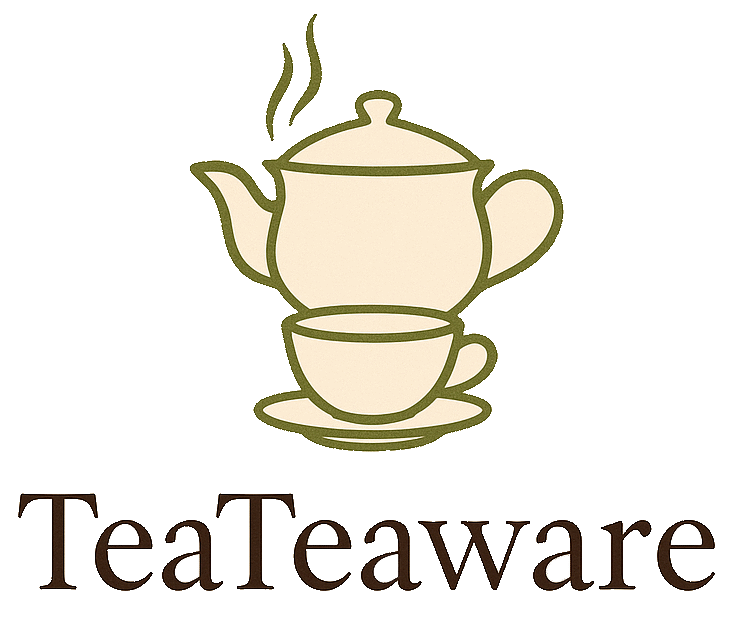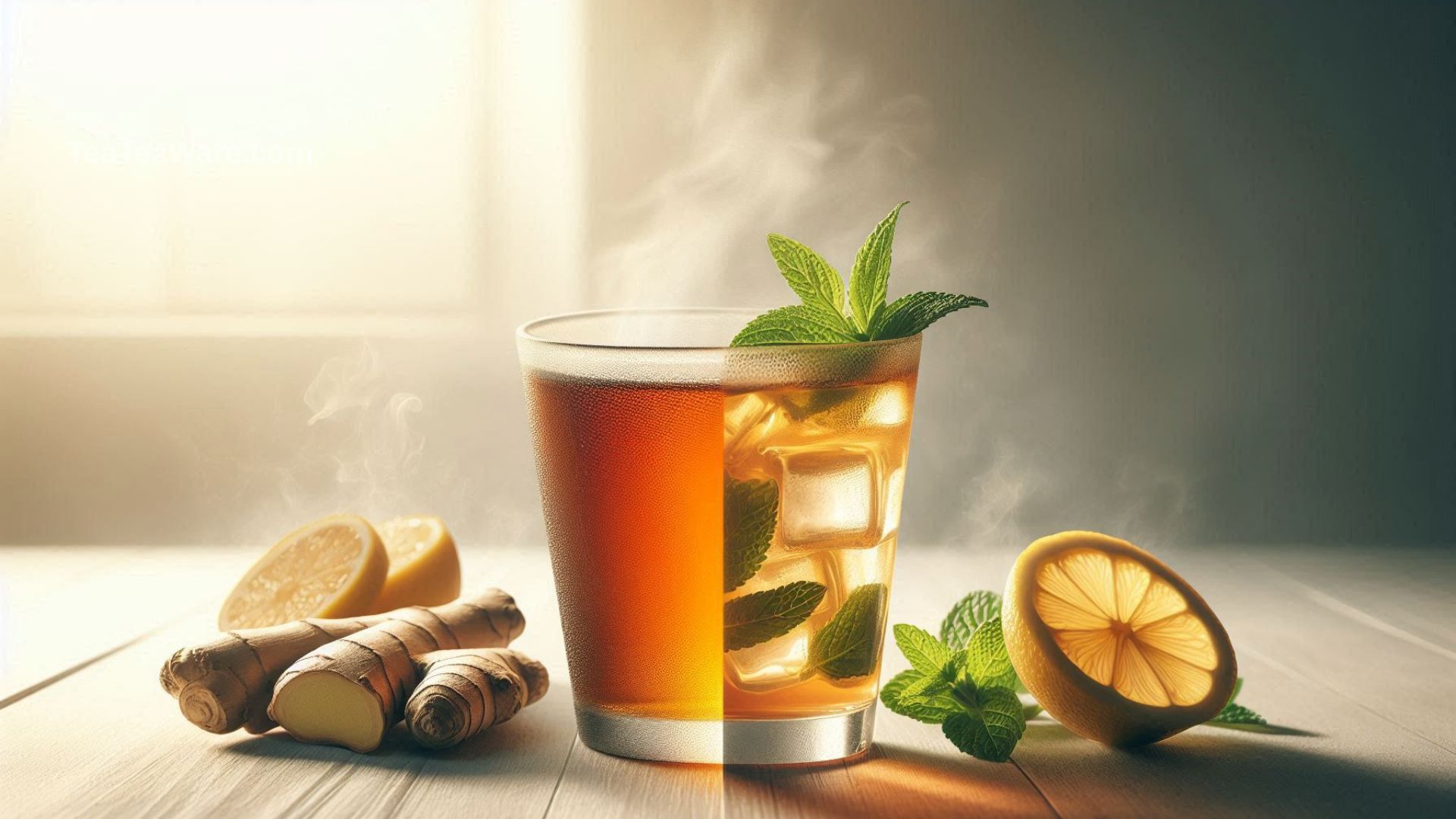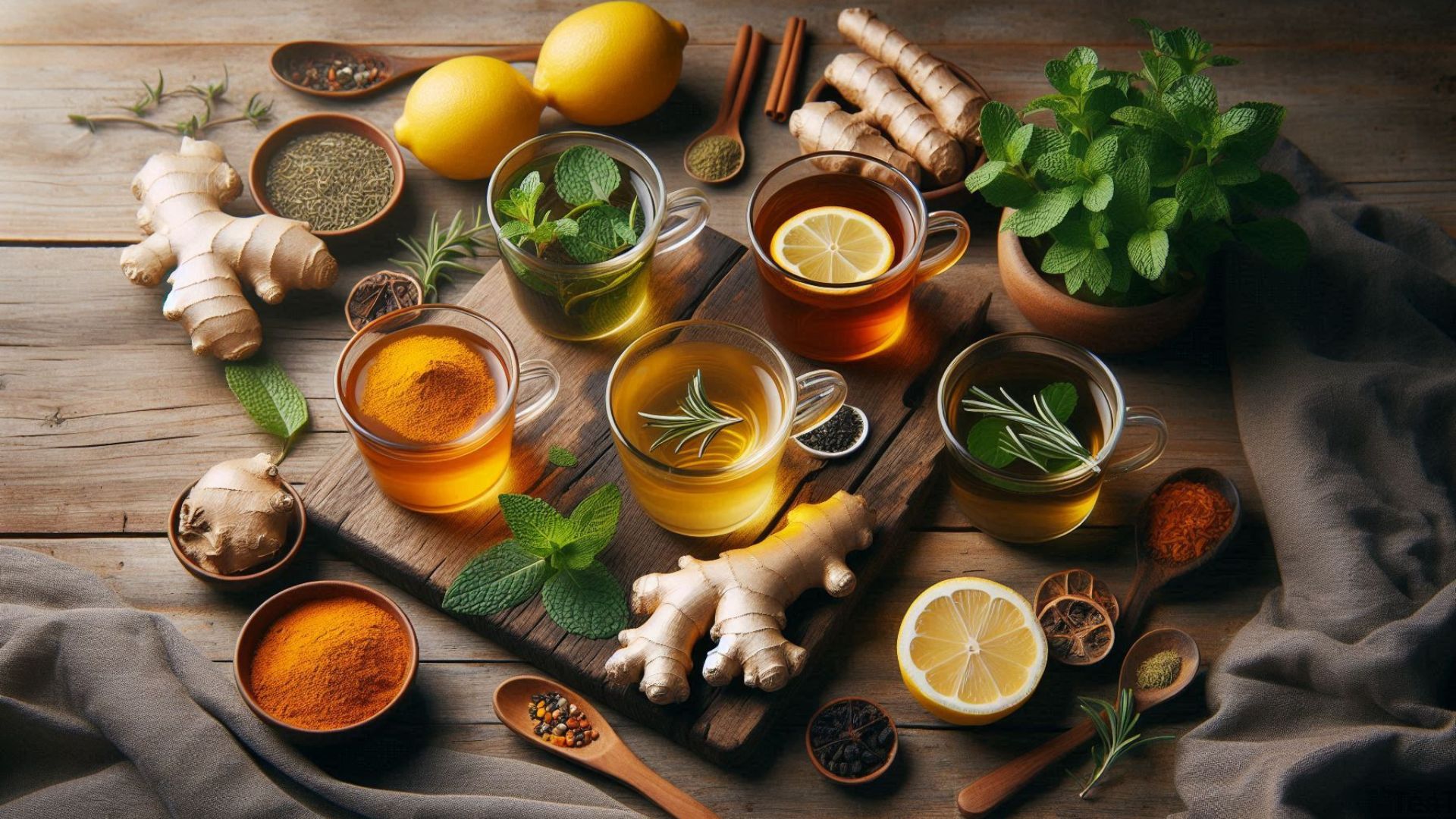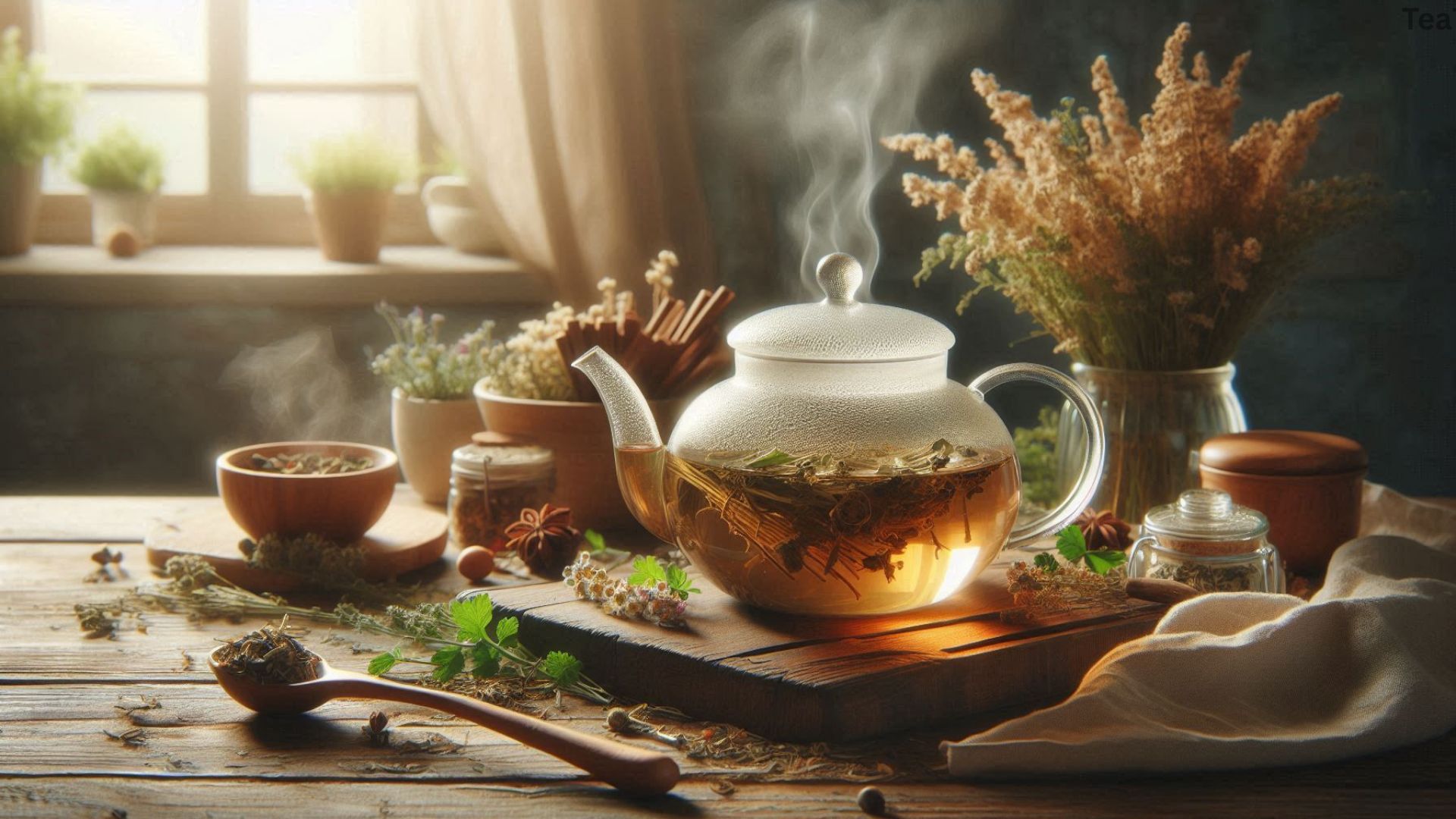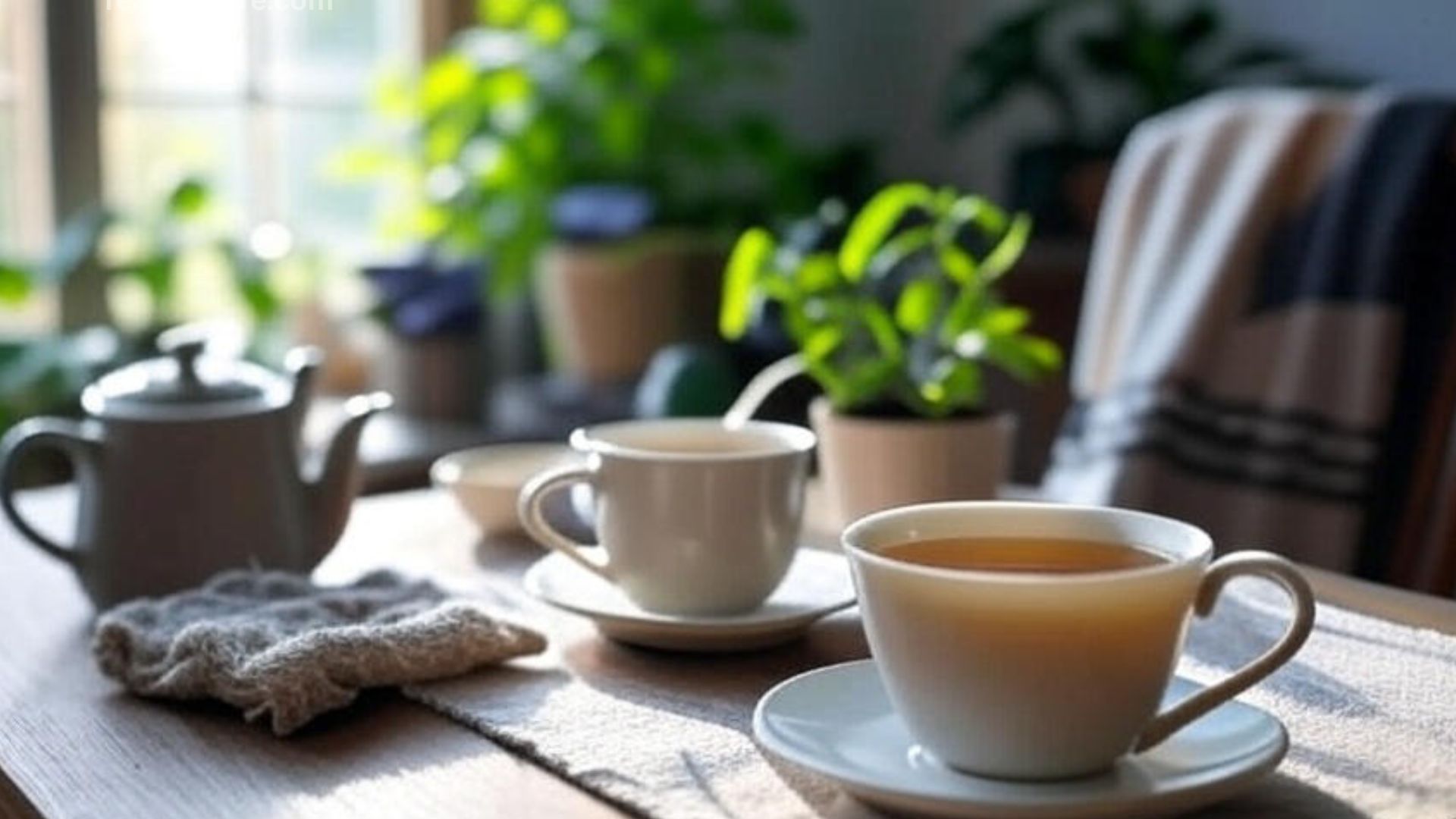Headaches are one of the most common health complaints worldwide. Whether it’s a dull tension ache, a sharp migraine, or sinus pressure that makes your head feel like it’s stuffed with bricks, headaches can ruin your day in minutes.
For many people, a simple cup of tea can make a difference. But here’s the real question: should you drink your tea hot or cold when you have a headache?
Both options have benefits, and the right choice may depend on the type of headache you’re dealing with, your body’s response, and even the time of day. Let’s explore the science, the traditions, and practical tips to help you find out which is better for you: hot tea or cold tea.
What Causes Headaches?
Not all headaches are created equal. Understanding the type of headache you have can guide you toward the best remedy.
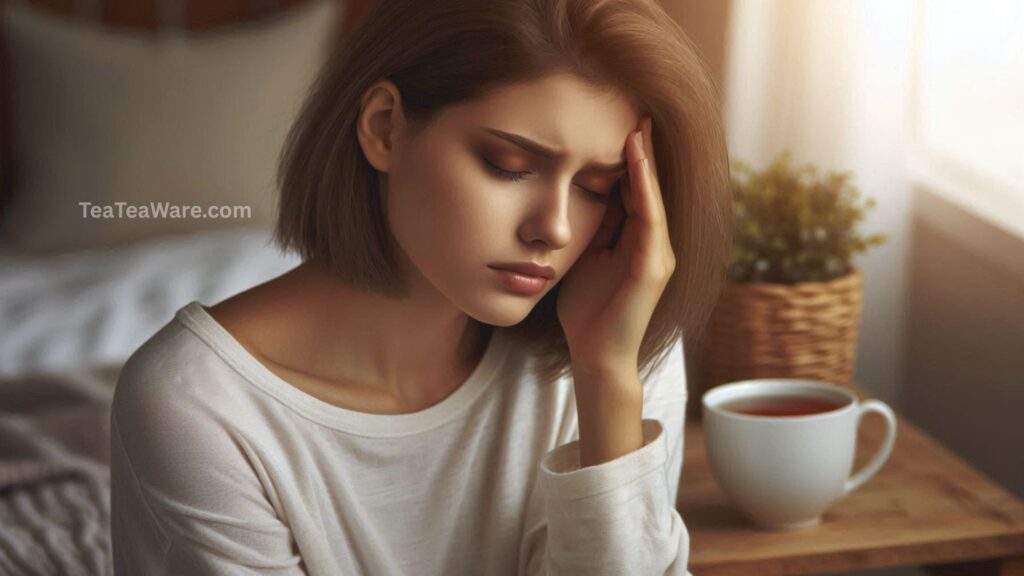
Common types of headaches include:
- Tension headaches: The most common. Feels like a tight band squeezing your head. Often triggered by stress, muscle tension, or eye strain.
- Migraines: Intense throbbing pain, often on one side of the head. Can include nausea, sensitivity to light, and visual disturbances (auras).
- Cluster headaches: Severe, stabbing pain that comes in cycles, usually around one eye or temple.
- Sinus headaches: Pressure and pain in the forehead, around the nose, and behind the eyes. Often linked to congestion.
Triggers range from dehydration, lack of sleep, stress, and weather changes to certain foods (like chocolate, red wine, or aged cheese).
Can Tea Really Help?
Not all headaches are created equal. Understanding the type of headache you have can guide you toward the best remedy.
Common types of headaches include:
- Tension headaches: The most common. Feels like a tight band squeezing your head. Often triggered by stress, muscle tension, or eye strain.
- Migraines: Intense throbbing pain, often on one side of the head. Can include nausea, sensitivity to light, and visual disturbances (auras).
- Cluster headaches: Severe, stabbing pain that comes in cycles, usually around one eye or temple.
- Sinus headaches: Pressure and pain in the forehead, around the nose, and behind the eyes. Often linked to congestion.
Triggers range from dehydration, lack of sleep, stress, and weather changes to certain foods (like chocolate, red wine, or aged cheese).

Olinda Healing Flowers & Roots Herbal Tea
This variety pack includes calming teas like peppermint, chamomile, and ginger — all known to help with tension and migraine headaches. Can be enjoyed hot or cold.
Also Read: Honest Review: Stovetop Safe Ceramic Teapots (Top 3 Compared)
Can Tea Really Help with Headaches?
The short answer: yes, tea can be a gentle, natural remedy for headaches.
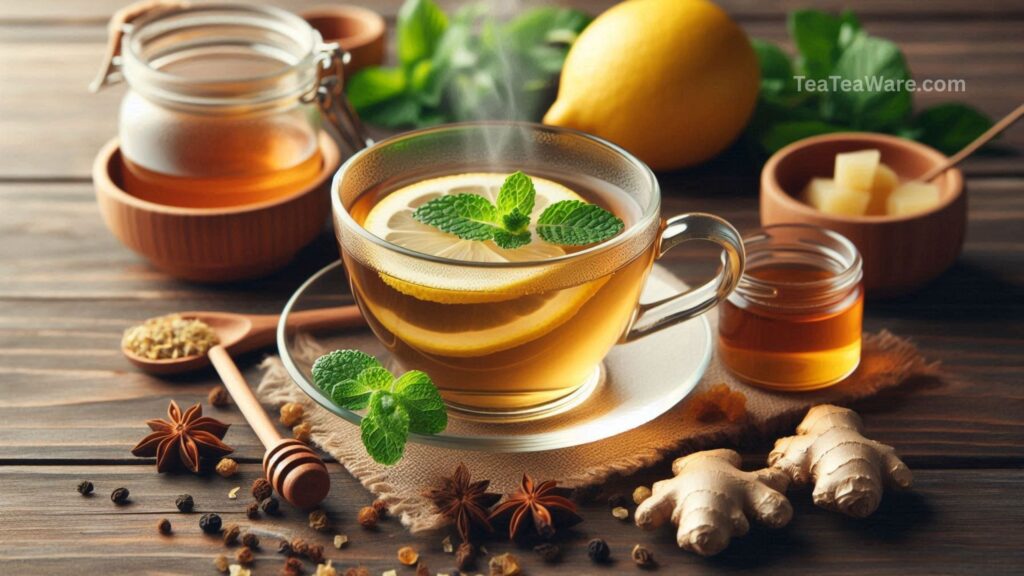
Here’s why tea works:
- Caffeine – constricts dilated blood vessels in the brain, which may reduce headache pain. (This is why many painkillers include caffeine.)
- Antioxidants – reduce inflammation and oxidative stress, which may contribute to headaches.
- Herbal compounds – some herbs like peppermint, chamomile, and ginger directly relax muscles or ease nausea associated with migraines.
According to a study published in Nutrients Journal, herbal teas rich in anti-inflammatory compounds show potential in reducing headache frequency and intensity.
Hot Tea for Headache Relief
Many people instinctively reach for a steaming cup of tea when their head hurts—and for good reason.
Benefits of hot tea for headaches:
- Relaxes tense muscles in the neck and scalp.
- Improves circulation and blood flow.
- Releases calming aromas (aromatherapy effect).
- Steam may relieve sinus pressure.
Best hot teas for headaches:
- Peppermint tea – eases tension, improves circulation.
- Chamomile tea – promotes relaxation, reduces anxiety.
- Ginger tea – powerful anti-inflammatory, helps with nausea.
- Green tea – mild caffeine plus antioxidants.
- Turmeric tea – reduces inflammation, supports immune balance.
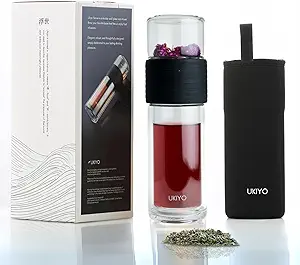
Ukiyo Sense Premium
Ideal for brewing tea on the go — keeps hot tea warm and cold tea chilled. Great for iced peppermint or hot chamomile depending on the type of headache.
Also Read: How to Store Your Teaware Safely (And Prevent Cracks)
Cold Tea for Headache Relief
On the other hand, cold or iced tea can also provide relief—especially for migraines or heat-related headaches.
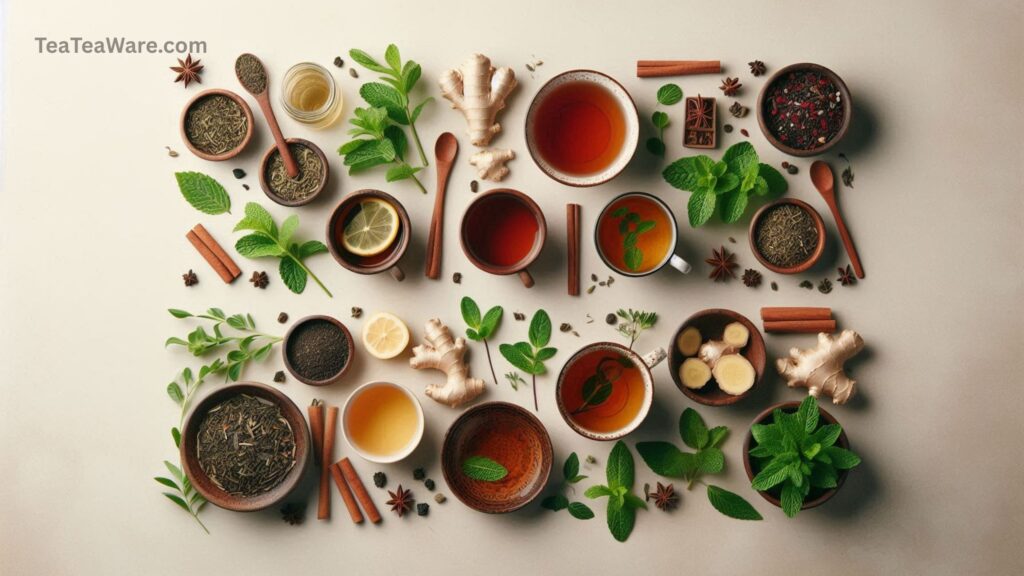
Benefits of cold tea:
- Cooling effect can numb pain sensations.
- Helps rehydrate the body quickly.
- Refreshing, especially in warm weather.
- May reduce nausea in migraine sufferers.
Best cold teas for headaches:
- Iced green tea – antioxidant-rich and cooling.
- Cold peppermint tea – combines refreshing chill with muscle-relaxing properties.
- Iced chamomile tea – soothing, but lighter on the stomach when chilled.
- Hibiscus tea (iced) – naturally cooling and anti-inflammatory.
Hot vs Cold Tea: Which Is Better?
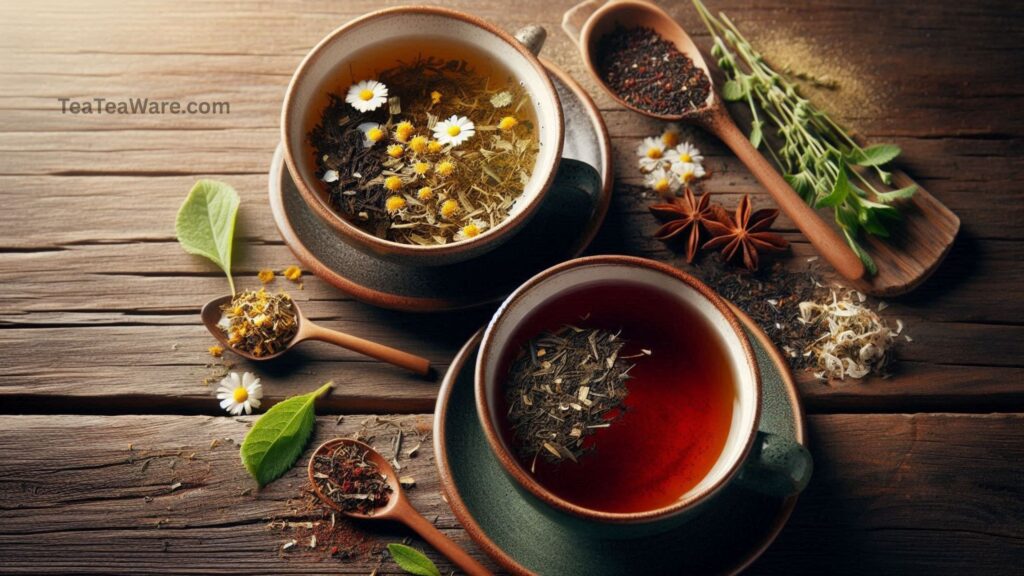
It depends on the type of headache and your body’s needs:
| Headache Type | Best Tea Temperature | Why |
|---|---|---|
| Tension headache | Hot | Relaxes muscles, reduces stress |
| Migraine | Cold | Cooling effect helps with nausea and pain |
| Sinus headache | Hot | Steam loosens mucus and eases pressure |
| Cluster headache | Either | Tea won’t stop pain, but hydration helps |
Takeaway: Hot tea often works better for tension and sinus headaches, while cold tea may be more effective for migraines and heat-triggered headaches.
Best Teas for Migraines
- Peppermint tea – eases nausea and tension.
- Ginger tea – reduces inflammation.
- Green tea – mild caffeine boost can ease migraine pain.
- Feverfew tea – a traditional herbal remedy shown to help some migraine sufferers.
Best Teas for Tension Headaches
- Chamomile tea – calms both body and mind.
- Lavender tea – aromatic relaxation, muscle relief.
- Turmeric tea – natural anti-inflammatory.
- Peppermint tea – eases tight muscles in the neck and shoulders.
Herbal vs. Caffeinated Teas
- Herbal teas – naturally caffeine-free, gentle on the system, great for evening headaches or people sensitive to caffeine.
- Caffeinated teas – small doses can ease pain, but too much caffeine may trigger rebound headaches.
Tip: If you drink coffee regularly, switching to tea may help you reduce caffeine without withdrawal headaches.
When Tea Might Not Help
Tea isn’t a cure-all. It might not help if:
- Your headache is triggered by caffeine sensitivity.
- Certain teas interact with medications (especially blood thinners or antidepressants).
- Migraines are triggered by specific foods or drinks (rare, but possible).
When in doubt, always consult your doctor.
What Science Says
- Caffeine enhances the effects of pain relievers (American Migraine Foundation).
- Herbal teas such as ginger and chamomile contain anti-inflammatory compounds that may reduce pain (Healthline).
- Antioxidants in green tea may help lower oxidative stress, a factor linked to migraines (PubMed research).
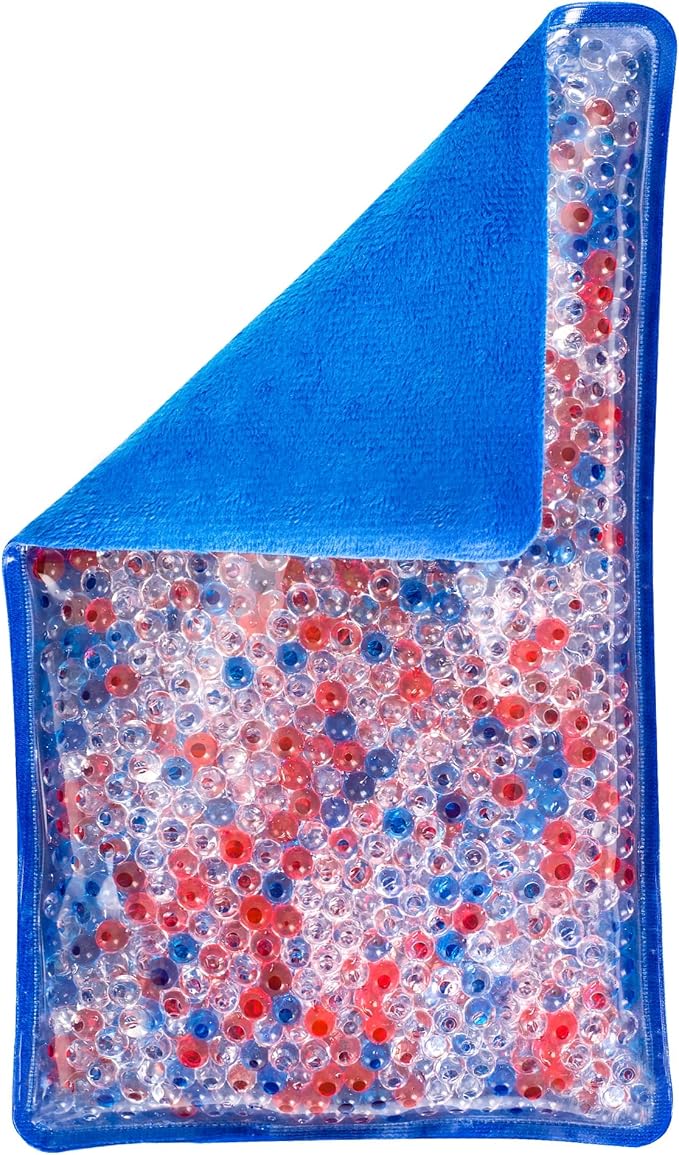
Hot/Cold Reusable Gel Bead Pack
Not tea, but a perfect complementary product. Pair your tea (hot or cold) with a soothing gel pack for targeted headache relief.
Also Read: Ceramic vs Porcelain Teapots: Which Should You Buy?
Listen to Your Body
At the end of the day, everyone is different. Some people swear by hot peppermint tea, while others find iced chamomile gives them faster relief.
👉 The best advice? Experiment. Try both hot and cold teas and notice which works better for you.
Other Natural Headache Helpers
Pairing tea with other remedies can maximize relief:
- Essential oils – peppermint or lavender applied to the temples.
- Stay hydrated – dehydration is a leading cause of headaches.
- Sleep well – poor rest is a major trigger.
- Relaxation techniques – meditation, yoga, or deep breathing.
- Balanced diet – avoid trigger foods like processed meats, artificial sweeteners, and alcohol.
Final Thoughts
So, cold vs hot tea for headaches—which is better?
- If you’re battling stress and tension: go for hot tea.
- If you’re dealing with migraines or heat-induced pain: reach for cold tea.
- If you’re not sure—try both and listen to what your body responds to best.
Tea may not cure every headache, but it’s a natural, soothing, and hydrating way to support your body.
☕ Next time your head starts pounding, skip the overthinking and try brewing your favorite tea—hot or iced. Relief may be just one sip away.
FAQs About Tea and Headaches
Q1. Is hot tea always better than cold tea for headaches?
No. Hot tea is better for tension and sinus headaches, while cold tea may be more effective for migraines.
Q2. Can caffeine in tea make headaches worse?
Yes—too much caffeine may cause rebound headaches. Stick to moderate amounts.
Q3. What’s the best tea for migraines?
Peppermint, ginger, and green tea are among the best migraine-friendly teas.
Q4. Can I drink tea every day for headache prevention?
Yes, but balance is key. Herbal teas are safe daily. Limit caffeinated teas if you’re prone to rebound headaches.
Q5. Does iced tea help with dehydration headaches?
Yes, provided it’s not overloaded with sugar. Unsweetened iced herbal tea is ideal.
